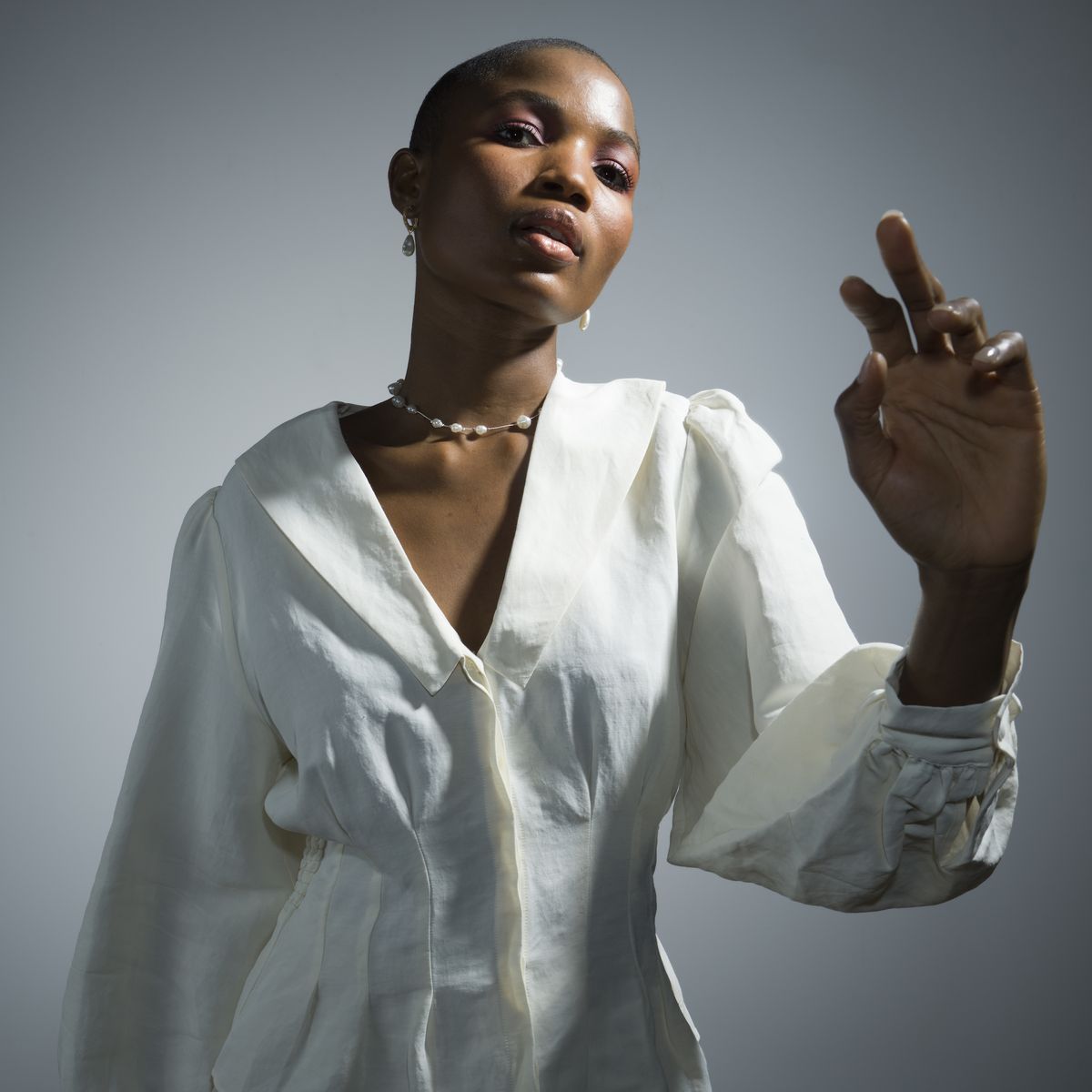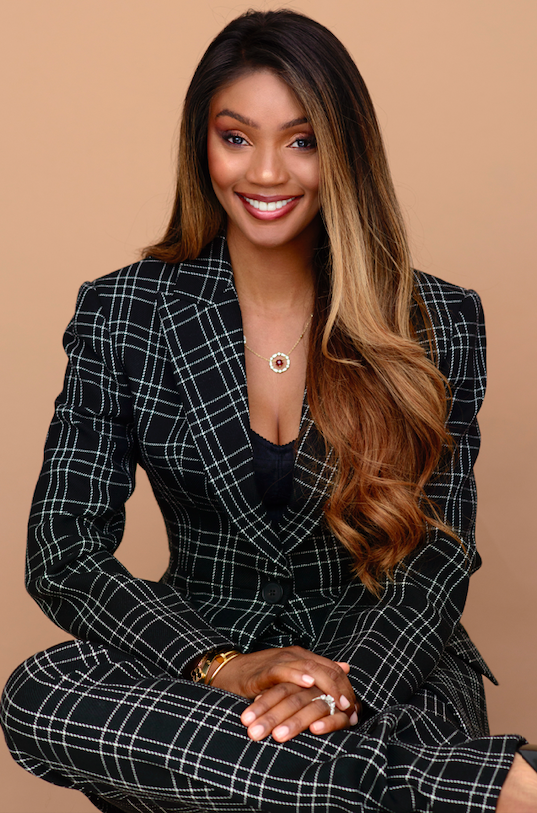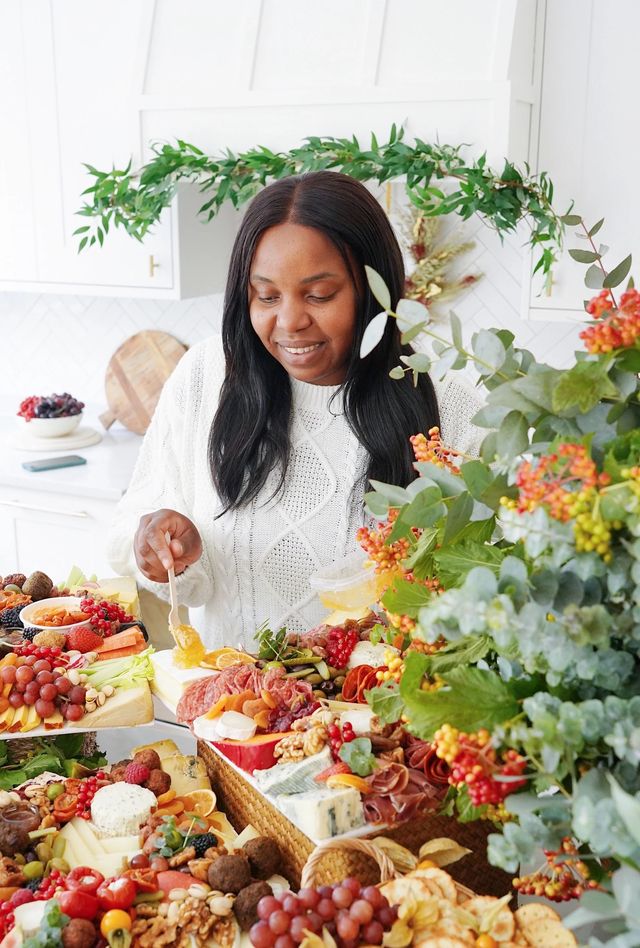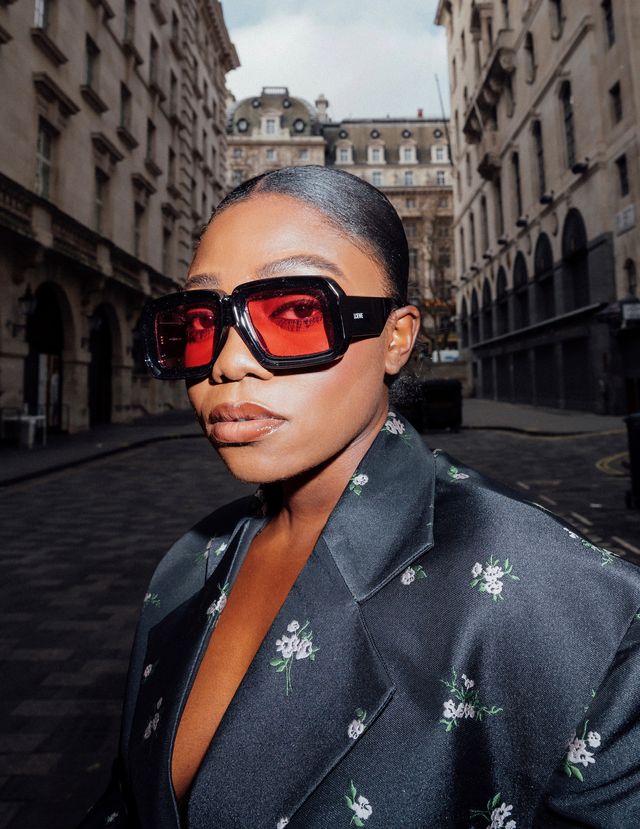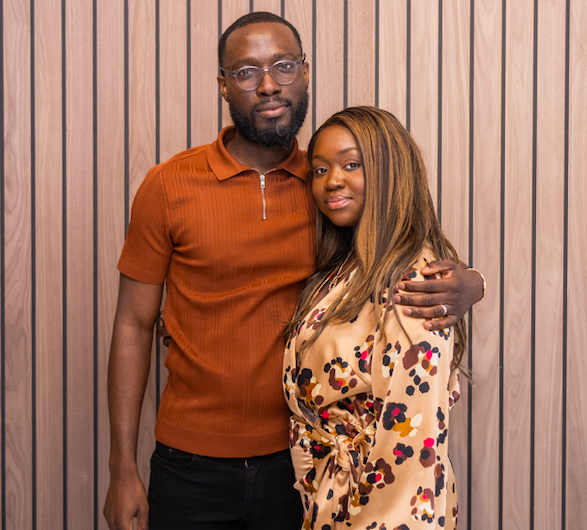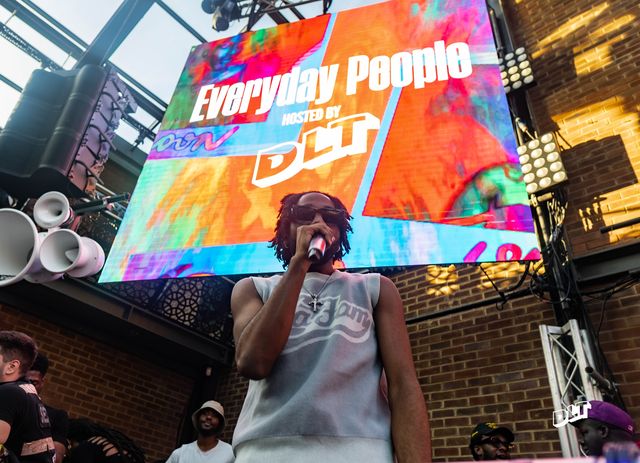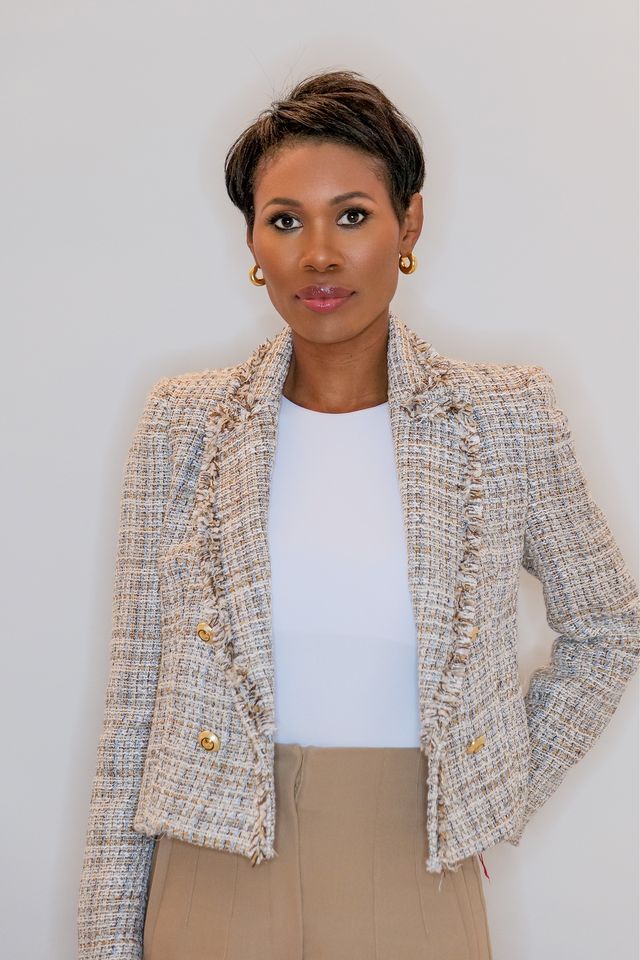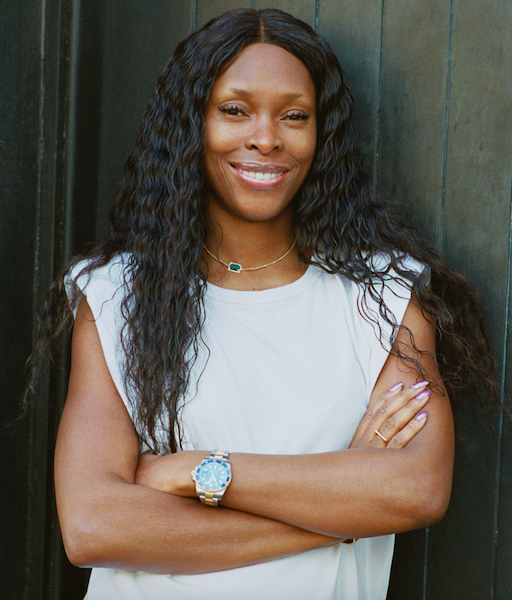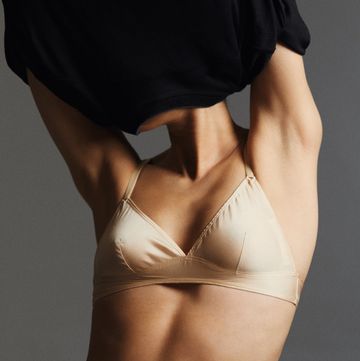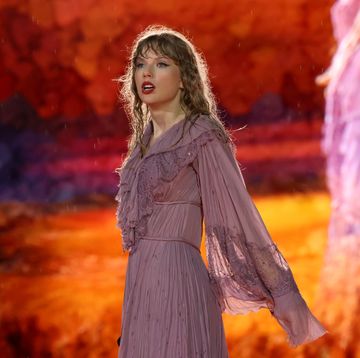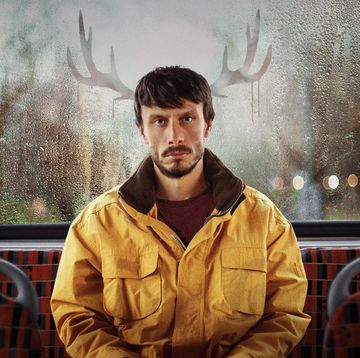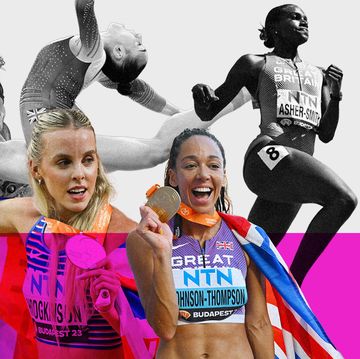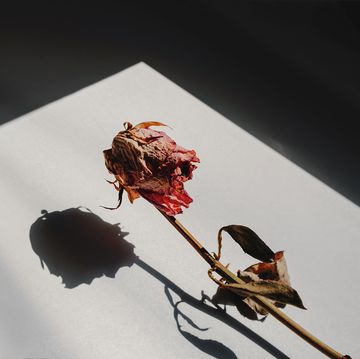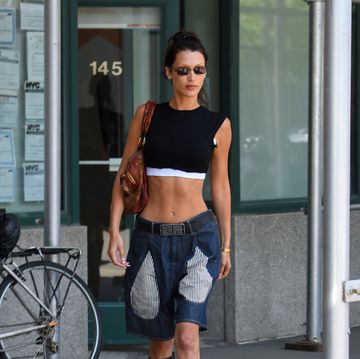Since the resurgence of the Black Live Matter Movement in 2020, across Britain conversations around what true equity both socially and financially looks like have reached an all time high.
While the creation of initiatives like Black Pound Day - a programme that encourages consumers to spend with Black businesses on the first Saturday of every month - and buzzy lists with the best Black-owned business to shop and support now seem commonplace; three years on questions around true progression persist. How do we reinvest in Black businesses in a meaningful and long-term way? How can we permanently shift the dial on the systemic fund gap, a gap that which currently sees 88% of Black founders self funding and, more specifically, Black female founders facing the brunt of access issues.
We spoke to Black business founders from various industries to find out more about their highs and lows, and to gain a better understanding of how to best provide support and money where it matters.
SOW
Branching into the wellness space, was an organic process for the Simi Launay, founder of SOW, a supplements line formulated to address the health concerns of a diverse population. 'SOW was born out of real big kitchen table moment,' says Launay. 'I had moved to Portugal, gotten married and within six months I sadly went through an ectopic pregnancy. It made me reflect on my overall lifestyle and health.' During the Covid-19 pandemic, Launay says she became increasingly aware of the statistics of Black and Asian people who were dying, and began to investigate with an epidemiologist into why particular communities suffer from certain ailments more than others. 'And whether through SOW we can begin to decrease the gap in ethnic health inequalities,' says the wellness founder. Money wise, much like many Black female founders the venture was 'self funded for the first few years and remains predominantly so. However, accessing funding continues to be a challenge, and even more so when investors are looking for businesses that scale faster than potentially products businesses do, believes Launay. ' It sometimes feels like goal posts are always is moving, but I truly believe the future remains bright for Black female founders,' she adds.
BERRY AND BRIE
'I was in that awkward phase about two months before I was about to go back to work from my second maternity leave and looking to make use of my time, so I started pulling together these charcuterie boards for fun,' explains Berry and Brie founder, Mako Ndoro. From there, the caterer began posting about her business on local mums' pages and received her first order through word of mouth. The tipping point for the new venture, however, came in 2020, during Ndoro's third maternity leave 'after my then-budding business basically disappeared overnight,' she says. During this period of uncertainty, the founder says: 'I really had to lean on my family and friends in order to see a way forward. One day I found myself in a two-hour supermarket queue, a month post-birth, and feeling ready to reevaluate the future of Berry And Brie,' she recalls. The moment was a catalyst for the brand's made-to-order box delivery service. Ndoro says the business grew from 30 orders to supplying the over 100 boxes to the John Lewis team across the UK. 'I still experience a lot of resistance being a Black business owner in primarily and predominantly "white" type of food offering,' she says. 'Be that at events where people assume I'm the cleaner, or banks treating me with that slight hesitation.' However, the founder remains hopeful, noting that ultimately 'it's going to be about not only finding investment, but also the right support from people who share our vision and want to give support to a Black business owner, even if that feels like finding gold'.
KAI COLLECTIVE
'I've had a blog since 2012 and I love fabric shopping,' explains Kai Collective founder, Fisayo Longe. Before long, Longe was inundated with followers asking her where she could buy certain items 'so Kai Collective was really a labour of love', she says. Rather than launching a business with a strict USP, Kai Collective organically grew into the brand it is today. It's a commitment to community that Longe credits as the driving force behind the company's growing profile and stake in the fashion world. 'Kai is now hailed for its unique industry leading prints, and each collection is funded by the previous,' she notes. It's a financial model that Longe is particularly passionate about, 'I am enjoying having a brand that's growing at the pace that I feel it should be, so we aren't really looking at secondary funding in the present, as for in the future with a really good Angel investor? Maybe one day.' Money, of course, isn't to be scoffed at. 'To put it plainly, I do think that we would have amassed equitable press and recognition with more of it [money],' says Longe. At the crux of the issue also lies a revision of 'back to the old ways' after 2020 when Longe says 'brands were scared of cancellation so sought our ways to fix some of the systemic issues within the founder and business space. In 2023 it's safe to say that is firmly over,' she notes.
AVA ESTELL
'Were now looking to expand further into the US,' says Yaw Okyere, co-founder of the now-viral beauty startup, Ava Estell. 'To put it frankly, the market for products geared towards melanated skin is wider over there, so it feels like a great next step.' Okyere launched the brand in 2016 with love as its main source of inspiration. Okyere recalls noticing that his now-wife declined to remove her jacket on their first date in an attempt to avoid showing her hyperpigmentation marks and eczema. 'I asked her if I could formulate something to that would help,' the former chemical engineer and formulator explains. 'It worked so well and was free from a lot of the chemicals and bleaching agents many people avoid. Via word of mouth the business really grew from there,' he says. Since 2016, the brand has gone through several rounds of funding, secured an impressive £1,000,00o sum via Angel Investors (a fair shot more than the £5,000 originally used to launch Okyere's side-hustle-come-multi-million-pound venture. In terms of venture capitalists and larger capital gains, like many founders, Okyere cites a list of myths and misconceptions around Black businesses. 'We will be in meetings where it's clear they don't understand the scope of the market and the people who we serve,' he admits. 'It makes me stop and go "you do realise people with melanin in their skin make up 80% of the global population, right?".' If anything, it's a misconception the founder says encourages, rather than deters, him to continue Ava Estell's vital work.
DLT
After witnessing the ever-expanding day party scene in the US, Michael 'MK' Amusan, Bosun Apata, Ife Awosika and Anthony Iban, founded DLT – an acronym for Days Like This - as a haven for lovers of good food, music and vibes. 'We began using personal capital, so when starting out the biggest barrier to entry was venues,' explains co-founder Ife Awosika of the business' early days in 2016. Although the brand has a few 'silent partners', money-wise Awosika says 'the funding comes from whatever the previous party generates'. 'We don't have a pot of money that enables us to do things,' he notes, adding that instead, DLT relies on dynamic community marketing. 'Word of mouth, social media... everything we do is based on the fact that we know we can sell tickets via our core audience in that five to seven year period in your twenties when you just want to have place to come to party.' So, what's next ? 'DLT, but global,' says Awosika. It's a future that feels not too distant with the brand already boasting events Malta and Ghana.
BEAUTY EDIT AND NAIL AND BROW BAR MAYFAIR
Serial entrepreneur Sherrille Riley has been a staple on the Mayfair beauty services scene for over a decade. 'I have over 26 years of experience in the beauty industry, but the journey towards the creation of any of my businesses is seeking to resolve a problem,'says the founder, who has founded three business in total during her career. 'Be it eliminating the travel people with multi-textured hair face in London in order to access products that work for them, or offering cleaner, greener alternatives to everyday products and services. For me, it's all about allowing people to make conscious beauty decisions,' she says. ' Riley comes from a matriarchal line of business owners, so connection and community have been integral components to the financial growth of her businesses from the beginning (her first investment came from a client with a hedge fund background). I can't say it's been smooth sailing. 'I had to Anglicise my name to Sheryl in order to get a foot in door with real estate in Mayfair,' she recalls. 'When I first began to think about expansion in 2018, I had real estate agents calling to give me first refusal, so it's definitely been a major shift. 'There's still so much progress to be had, but my best tip for any young founder is to build out your team with people that align with your vision, but resist the urge to create an echo chamber,' she advises.
THE STEAM BAR
Creating a startup in the midst of financial flux is no easy feat, but one that Judy Koloko, one of the founders of The Steam Bar premium hair care brand and salon, is set to launch in Selfridge's from November. 'I think it's clear to see that Black hair care has evolved drastically over the past few years and I believe The Steam Bar is a real reflection of that reality,' says Koloko. The beauty pro who worked alongside fashion vanguard Camilla Lowther CLM before forging ahead with her venture in 2020. 'Each product has been meticulously crafted, with highly sources ingredients scented by Azzi Glasser. It feels a long way from my childhood sat cross legged with a hot oil treatment under a plastic bag on my hair, glued to the TV,' she jokes. When explaining the creation of a physical iteration of the brand (The Sanctuary - a scalp health focused salon is set to open on Selfridge's third floor in the spring 2024) Koloko says: 'Now that I am older and have gone through all the weaves, extensions, and not really caring or honouring my crown as much as I should, this now feels like a full circle moment for that little Black girl.' So far the venture has been funded by personal investments and the burgeoning brand's family and friends, 'We're creating something from the people, for the people,' explains Koloko. 'It's a shame when people say you're in a space because you're ticking a box, but that's unfortunately where we are with the world. I would like to think that people will one day look and say "wow, look at what the steam bar accomplished". There's no ceiling.'
